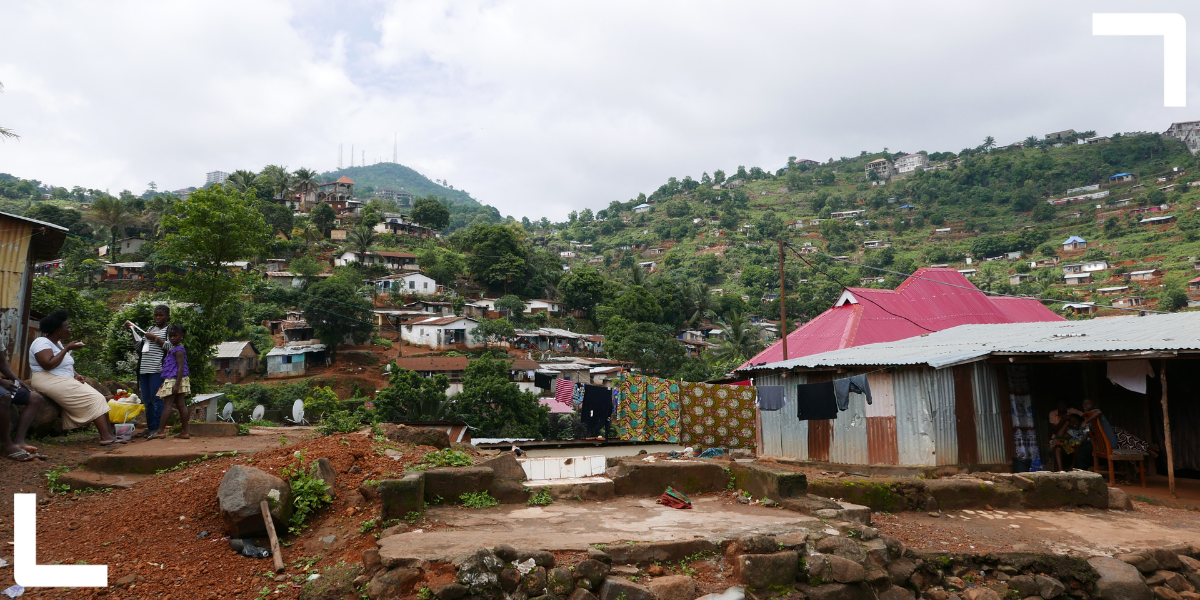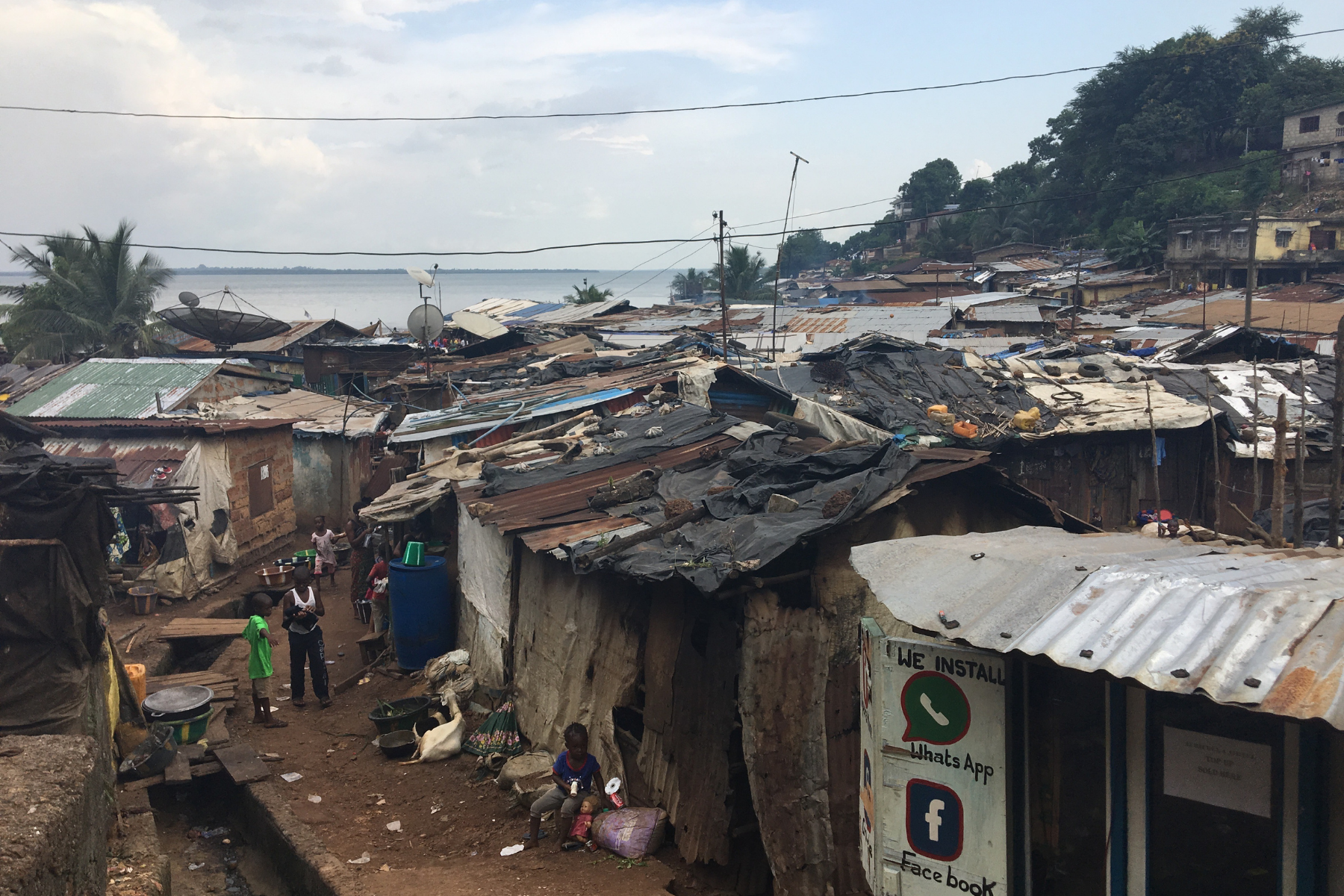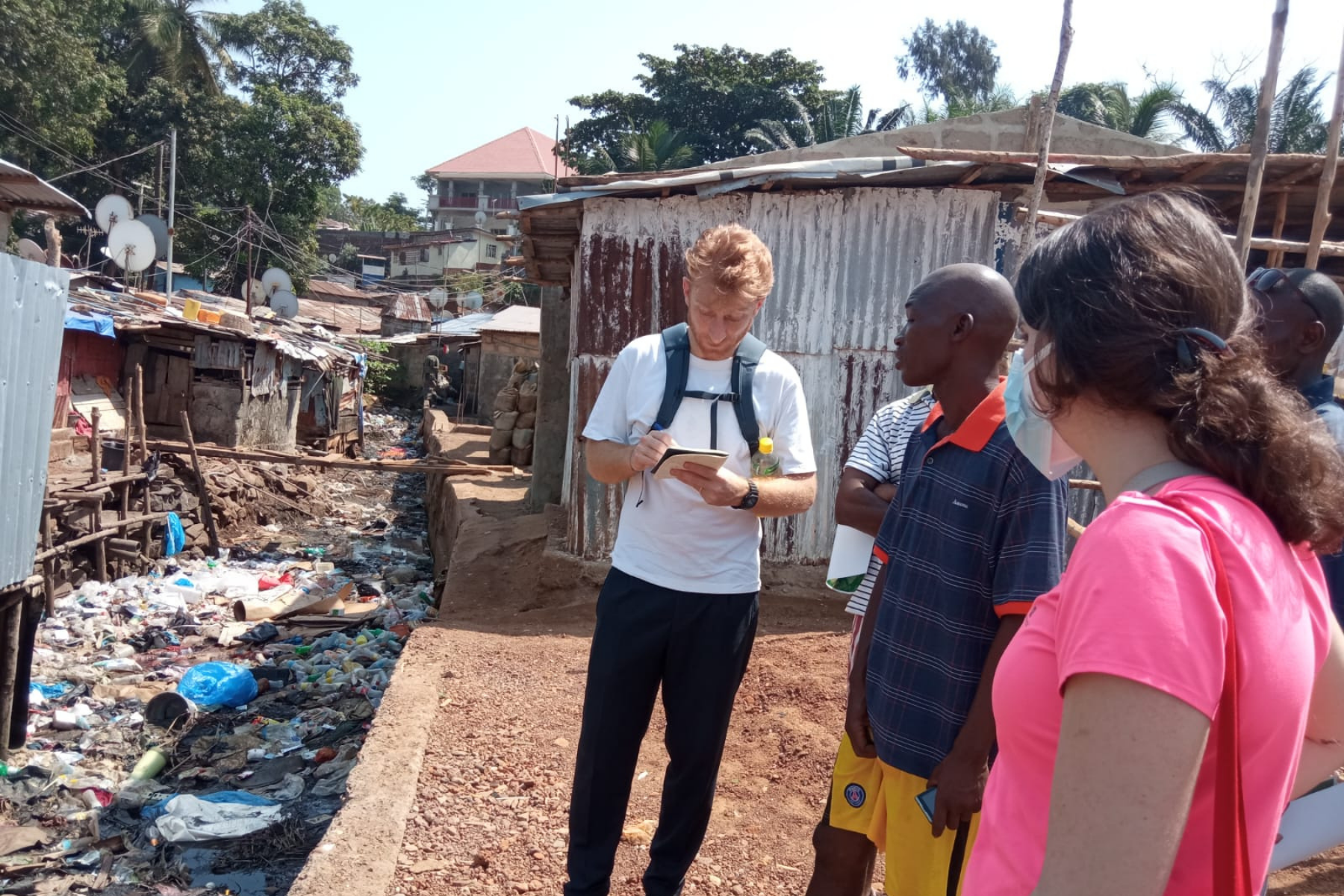Header photo credit: Luis Gama. Housing in Dworzack, Freetown.
For more than 30% of Freetown households, access to housing takes place in one of its 60 informal settlements. The most likely scenario for those looking for a place to live in one of Freetown’s informal settlements is that they will end up living in a “panbody” shack, which is a small room made of zinc.
Rent varies a lot, depending on proximity to town as well as exposure to the risk of flooding. For a zinc room, rent can cost anything between Le 60.000 (US$ 6) and Le 120.000 (US$ 12) per month. To have access to one of these, tenants need to advance two years’ rent. Access to water and toilets is often not included, as tenants need to pay for facilities to local service providers on the go, every time they use them. If the zinc shack needs any maintenance, for example to repair a leaking roof, it is up to the tenant to cover these costs.
Panbody housing illustrates the deep urban environmental injustice of our times. Residents living in extreme poverty in Freetown end up being the most exposed to the impacts and burdens of climate change, such as rising sea-level and temperatures, as well as increasing intensity of rainfall.
A panbody shack in Portee Rokupa, Freetown. Photo credit: Alexandre Apsan Frediani
Aspirations and reality
For tenants, the aspiration is often to try to save up and find a piece of land where they can invest in their own house, and stop paying rent. But access to land is scarce and complicated. Sand banking, or occupation of slopes prone to landslides, has been one of the mechanisms for those who are able to save money and put the labour into it.
At the same time, it is hard to save, as the cost of living is high. Several everyday costs make life in Freetown expensive. Even if schools are supposed to be free, families need to pay for uniforms, books and other recurring costs. Meanwhile, tenants commonly try to send money regularly to their families in the provinces. While living in a panbody is initially supposed to be a temporary arrangement, for many residents of Freetown it becomes a medium- to long-term situation.
In this context, how can policy and planning break this cycle of housing deprivation?
For various Sierra Leonean national housing stakeholders, the focus is on how to enable the production of large-scale mixed-income housing developments, which can incorporate a percentage of affordable housing. These actors identify two key challenges to advancing this agenda. Firstly, they see the low income of the Sierra Leonean population as a key hindrance, arguing that only 1% of the country’s workforce is capable of acquiring a house with mortgage finance. And, secondly, they point to the high costs of building, caused particularly by dependency on international building construction materials, which fluctuate with gas and oil prices. However, even if conditions are in place for the production of affordable housing, it is unlikely to be accessible to residents in informal settlements.
Field visit to Cockle Bay, Freetown. Photo credit: Andrea Klingel
Small-scale developers as partners?
Meanwhile, there is a more immediate way to address the needs of informal settlement dwellers: enabling small-scale developers to make incremental housing more equitable and sustainable.
Even without the data, it is probably fair to argue that the main current investors in affordable housing in Freetown are these small-scale developers. They are landlords and entrepreneurs who have claimed or acquired access to a particular parcel of land and over time built a few structures, targeting the informal rental market. They often live within informal settlements and in close proximity to their rental units.
Landlords end up passing on the risks and burdens of their business to their tenants, as these types of housing developments are unregulated and insecure, given the high risk of evictions, floods and landslides, as well as lack of access to affordable finance. As a result, tenants end up having to pay too much for a very unjust housing arrangement.
But what if small-scale housing developers operated in a more enabling and supportive environment? Could they become partners in addressing housing injustices in Freetown, rather than treated as illegal and exploitative entrepreneurs?
Identifying opportunities and challenges
This is precisely one of the questions that the African Cities Research Consortium housing domain research is trying to address in Freetown. I lead the housing domain team alongside Ola Uduku, professor of architecture at the University of Liverpool. For our first set of cities, we’re analysing case studies from Freetown, Lilongwe, Nairobi and Accra.
In Freetown, the study is led by the Sierra Leone Urban Research Centre, which will be analysing the value chain of housing production and management in informal settlements in the city. Through this work, we hope to reveal the opportunities and challenges that small-scale developers face when creating access to housing that is affordable, socially just and sustainable.
Read more on our approach to securing housing rights.
Note: This article presents the views of the author featured and does not necessarily represent the views of the African Cities Research Consortium as a whole.
The African Cities blog is licensed under Creative Commons Attribution-NonCommercial-NoDerivatives 4.0 International (CC BY-NC-ND 4.0), which means you are welcome to repost this content as long as you provide full credit and a link to this original post.




